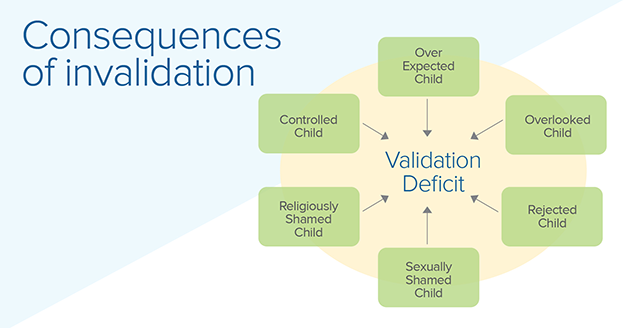
Invalidation is at the root of borderline personality disorder (and other personality disorders). People raised in invalidating environments — families where emotions were not allowed to be expressed or where children were discouraged from being themselves — develop beliefs that they do not matter, that they do not have a voice and that they do not have an identity, which leads to a host of relational problems in adulthood.
Invalidation often occurs in dysfunctional families where the parents are barely able to meet their own needs much less meet the needs of their children.
Invalidation also arises in otherwise healthy families in which one child just does not “fit.” The mother is unable to relate to the baby’s temperament, and the child consequently grows up feeling invalidated and misunderstood.
We cannot be responsible for our childhood environments. Yet, as adults, we can learn to seek validating relationships, validate others, and self-validate.